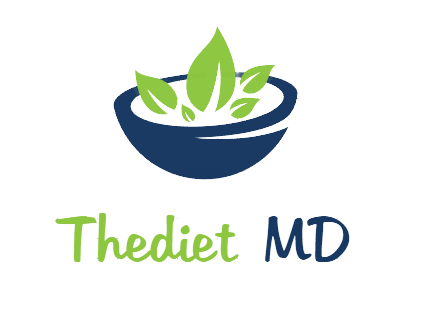Table of Contents
What is sports nutrition?
Sports nutrition for beginners is often obtained through high-tech processing, using only natural products of natural origin.
Sports nutrition plans for athletes, and the most recommended for sports performance can be defined either in a lot of good information, or rather through the cooperation of the athlete, with a nutritionist, or a doctor.
It is worth eliminating all kinds of myths and saying once and for all that sports nutrition has nothing to do with drugs, or steroids, and even less with any chemistry. This is exclusively due to organic or natural raw materials.
The main conditions for effective sports nutrition should understand several principles:
- The diet must be individual and developed by a nutritionist or doctor.
- Only those foods that promote physical development should be consumed.
- Compliance with the diet.
- Regular workouts.
- A comprehensive reception of sports nutrition and its impeccable quality.
For a beginner to achieve future results worthy of professionals, it is necessary to choose exactly those products worthy of Champions. Products must be patented and recommended by specialists and professional trainers.
A strong and beautiful body will testify that you have a strong character and are strong in spirit. Thanks to daily training, you can lay a solid foundation not only for your sports career, but also for good health, where sports nutrition will act as the material for this foundation.
Nutrition plays a very important role in athletic performance. No matter what sport you practice, you will be much more effective if you implement these 5 tips in sports nutrition.
You should know that the food we eat is an important factor that affects performance at all levels if you are a professional, hobbyist or just a sportsman for the weekend.
Food is the fuel for the body, and consuming the types and amounts at the right time is the key.
Eat healthy, choose whole foods, and plan your meals well to increase your performance.
Diet can have a massive impact on athletic performance. Proper nutrition is important to anyone, but athletes in particular are those who know that improper nutrition can affect their performance.
Dietary needs vary according to age, sex, body type and sport.
Inadequate calories and nutrients can weaken even the fittest athlete, while the correct balance of energy and macronutrients will help any athlete achieve peak performance.
Tips for sports nutrition
The caloric requirement of sports nutrition for athletes is higher than that of ordinary people, it has between 2,000 and 5,000 calories per day, depending on several factors.
Caloric intake is probably the most important aspect of an athlete’s nutrition. The higher a person’s activity level, the higher the calorie requirement will also increase.
In general, performance athletes are very knowledgeable about proper nutrition and are constantly in contact with a nutritionist.
Beginners in the field of sports can also be beginners in the field of nutrition and therefore can permanently inform themselves from quality sources or can call specialists in the field.
I cannot elaborate here, in general terms, an ideal food for athletes, because the variables are many: age, gender, somatic type (ectomorphic, endomorphic, mesomorphic).
When developing a nutrition plan for athletes I need all the basic information and at least one meeting with the athlete where we agree on the steps to be followed in the short and long term.
Power and performance
Nutrition for athletes: see here the recommended foods and natural biological supplements.
For optimal performance, athletes should follow a diet with a balanced carbohydrate, protein, and lipid content.
Because carbohydrates are the body’s preferred source of energy, most athletes need a diet rich in healthy carbohydrate sources, such as oatmeal, brown rice, pasta made from durum wheat, quinoa, buckwheat, soybeans, and fruits. vegetables.
Proteins are necessary for the construction and repair of muscle fibers destroyed during training. Healthy sources of lean protein include fish, chicken breast, lean meat, eggs, and low-fat dairy products.
Protein powders from pumpkin, hazelnut or lupine are also recommended in the nutrition of athletes. Lipids are the last component in the healthy diet, they need to be consumed in moderation. Eat foods low in saturated fat, such as walnuts, almond butter, and coconut or olive oil.
Breakfast
Eat regular and healthy meals as well as full of energy that increases and maintains your metabolism. Therefore, for breakfast we can eat a lot and the only requirement is to choose the quality of organic food and without too much salt or sugar. Sausage, donuts, cakes are not recommended.
Lunch
You need to make your lunch a priority and make a packet of instant healthy organic soup or fruit and energy bars.
You can even drink liquids that can replace a meal or instant breakfast drinks if you rush. They can eat foods high in carbohydrates and low in fat, such as pasta, rice, quinoa, and potatoes.
A healthy and rich lunch gives you enough energy to work out comfortably throughout the day. For athletes, pasta based on lentils or black, green or yellow soybeans with more than 40% protein and prolonged-release carbohydrates are recommended (see where they can be purchased here).
Price
Dinner is the time when you recover and recharge for the next day’s training or event, so nutritionists will suggest that you sit down and don’t rush through dinner.
For a sportsman, a good dinner might consist of a plate of black beans or soybeans and low-spiced meat, along with a green salad mix with vegetables and a tablespoon of yogurt dressing.

Choose the balance for your sports nutrition.
To eat right, keep a balance between carbohydrate, protein, and lipid intake. Taking into account that the main source of energy for your muscles is carbohydrates, it is recommended that a diet should contain 60% carbohydrates, 25 percent fat and 15 percent protein.
These percentages represent everything the body needs for excellent sports nutrition.
Hydration
It is extremely important for an athlete to be well hydrated. Pete Reciclitzinger used an example of long-distance running when he wrote the article, “Eat, Drink, and Finish Strong,” in which he stated that for every one percent of body weight lost through sweating, performance is reduced in two percent.
In other words, drink as much water or sports drinks as possible if you become dehydrated, and your performance will decrease, Runner or not, regardless of your sport.
My name is Ellie Lauderdale, MD and I am USA based professional Nutritionist .
I am a Registered Dietitian Nutritionist and board certified specialist in sports dietetics who is trained in integrative medicine. I have worked with hundreds of clients, from those suffering with chronic disease to professional and olympian athletes. My goal is to help optimize you from the inside so that you can feel, perform, and look your best on the outside.


